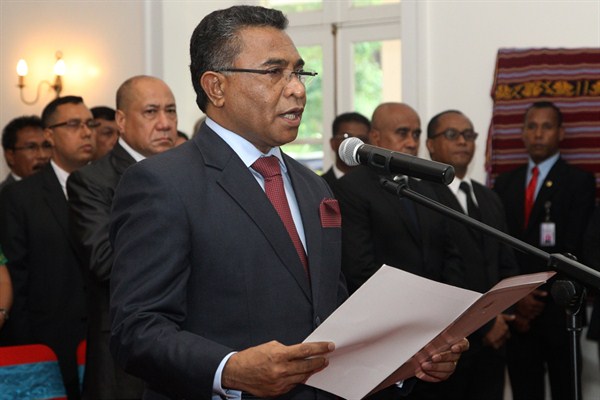Xanana Gusmao stepped down as East Timor’s prime minister earlier this month, leaving the post to opposition leader Rui Araujo. In an email interview, Gordon Peake, a research fellow in the State, Society and Governance in Melanesia Program at Australia National University’s College of Asia and the Pacific and author of “Beloved Land: Stories, Struggles & Secrets from Timor-Leste,” discussed East Timor’s political transition and democracy.
WPR: What were the political and other factors that led to the resignation of Prime Minister Xanana Gusmao and the appointment of Rui Araujo from the opposition Fretilin party?
Gordon Peake: No one really knows for sure. Some speculate that Xanana Gusmao, the longtime resistance leader turned statesman, is exhausted from years of governing in coalition; others suggest he’s weighed down by the scandals that swirl around many of his ministers and hangers-on. His age—he’s approaching 70 years old—and related health issues are also often cited.

